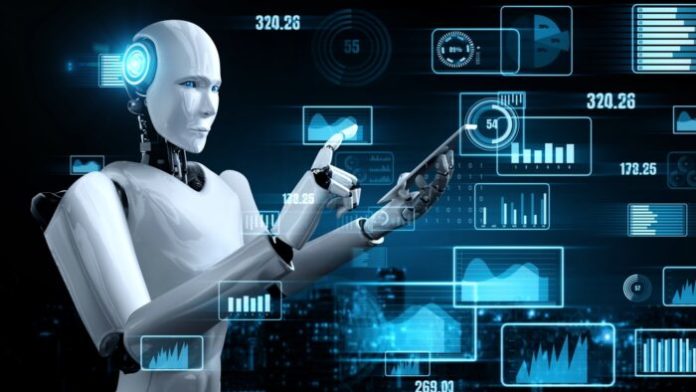Artificial Intelligence (AI) has rapidly emerged as a transformative force across various industries, revolutionizing the way businesses operate and innovate. One area where AI is making significant strides is in product development. From streamlining design processes to enhancing market research, the integration of AI technologies is reshaping traditional approaches and unlocking new possibilities. In this article, we will explore the profound impact of AI on product development and its implications for the future.
Intelligent Automation in Design
One of the most noticeable impacts of AI on product development is the integration of intelligent automation in the design phase. AI-powered design tools can analyze vast datasets, identify patterns, and generate creative solutions at a pace that far exceeds human capabilities. This not only accelerates the design process but also allows for the exploration of innovative ideas that might not have been apparent through traditional methods.
Machine learning algorithms can learn from existing designs, user preferences, and market trends, enabling them to generate designs that align with current consumer demands. This iterative process reduces time-to-market and fosters a more agile and responsive product development cycle.
AI-Enhanced Software Testing
In the landscape of product development, AI is revolutionizing software testing, a pivotal phase for digital products. Automated testing powered by AI algorithms accelerates processes, predicts potential bugs, and prioritizes test cases based on historical data. This results in quicker iterations and higher software quality. Experienced software testers collaborate with AI tools to leverage their expertise, fine-tune testing strategies, and ensure a comprehensive and reliable testing process.
AI-driven testing tools handle complex tasks, including test case generation and performance testing, with superior speed and accuracy compared to manual methods. Continuous testing, facilitated by AI, ensures real-time monitoring, detection, and resolution of issues, enhancing the resilience of software in dynamic environments. Incorporating AI into software testing not only improves reliability but also reduces post-release defects, enabling development teams to deliver high-quality software efficiently. This application of AI underscores its adaptability and effectiveness across diverse aspects of the product development life cycle.
Predictive Analytics for Market Research
AI is revolutionizing market research by providing predictive analytics that enable businesses to make informed decisions about product development. By analyzing vast amounts of data from diverse sources, including social media, customer reviews, and industry trends, AI algorithms can identify emerging patterns and predict market demands with a high degree of accuracy.
This predictive capability empowers businesses to tailor their products to meet specific customer needs and preferences, reducing the risk of developing products that may not resonate with the market. Furthermore, AI-driven market research allows for real-time adaptation to changing consumer behaviors, ensuring that products remain relevant and competitive in dynamic market landscapes.
Enhanced Personalization and User Experience
AI is enabling a new era of product personalization by analyzing user behavior and preferences to tailor products to individual needs. From personalized recommendations in e-commerce to adaptive features in software and hardware, AI enhances user experience by understanding and anticipating user expectations.
This level of personalization not only increases customer satisfaction but also fosters brand loyalty. Businesses that leverage AI to create highly personalized products are more likely to build strong, lasting relationships with their customers, driving repeat business and positive word-of-mouth marketing.
Iterative Prototyping and Testing
Traditionally, the prototyping and testing phases of product development have been time-consuming and resource-intensive. AI streamlines this process by simulating various scenarios, identifying potential flaws, and suggesting improvements. This iterative prototyping not only accelerates development but also enhances the quality and reliability of the final product.
Through AI-powered simulations, product developers can anticipate challenges and address them proactively, minimizing the need for extensive physical prototyping and testing. This results in cost savings and a more efficient development cycle.
Challenges and Ethical Considerations
While the impact of AI on product development is overwhelmingly positive, it is crucial to acknowledge and address challenges and ethical considerations. Issues such as bias in AI algorithms, data privacy concerns, and the potential displacement of human jobs require careful consideration and ethical decision-making to ensure that AI is leveraged responsibly and sustainably.
To conclude, the integration of AI into product development processes is reshaping the industry, offering unprecedented opportunities for innovation and efficiency. From intelligent automation in design to predictive analytics for market research, AI is unlocking new possibilities and transforming traditional approaches. As businesses continue to embrace these technologies, it is essential to navigate the challenges with a responsible and ethical mindset, ensuring that AI contributes positively to the future of product development.
Find a Home-Based Business to Start-Up >>> Hundreds of Business Listings.














































